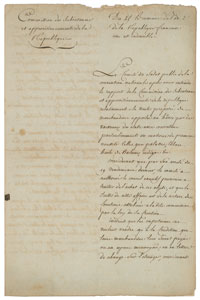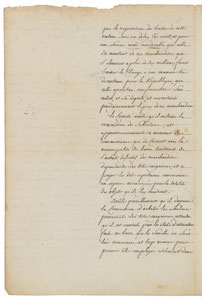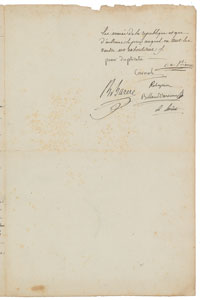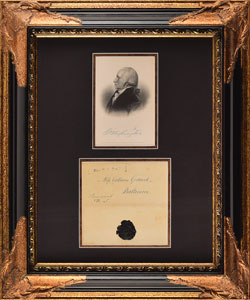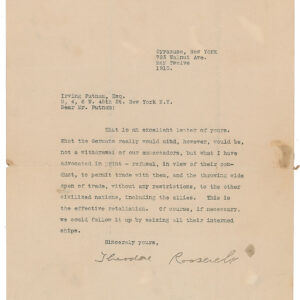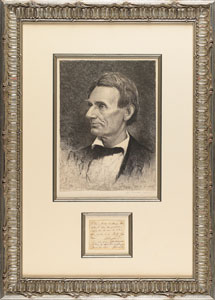Description
| Significant LS in French, signed “Robespierre,” three pages on two adjoining sheets, 9.25 x 14.25, 25 Brumaire 2 [November 15, 1793]. Robespierre reacts to aid sent unofficially from the United States during the French Revolution. An unofficial shipment of much needed goods from America, including shoes, “potash, tobacco, whale oil, indigo,” awaits Robespierre’s decision while the ship’s captain insists on pre-payment. Robespierre ultimately rejected American made shoes for their poor quality and “exorbitant” cost. At the height of his power during the Reign of Terror period of the French Revolution, Robespierre signed this letter along with leading members of the Committee of Public Safety: Carnot, Prieur, Barere, Billaud-Varenne, and Lindet.
In part (translated): “The Committee of Public Safety…regarding the proposed sale of goods brought to Le Havre by ships from the United States, consisting mainly of goods…such as potash, tobacco, whale oil, indigo, etc., consider that…the committee authorized the provisional executive council to deal with the purchase of these items…Having been informed that the captain will only sell on condition that the merchandise is paid for either in ready money or by foreign letters of exchange…considering that the negotiation of matter of this nature in such a short space of time, and for such a considerable amount as…something above six million, would cause the rate of exchange to drop to a disastrous extent for the Republic, compromising its credit and its dignity and would cause the price of this merchandise to increase prodigiously…commissioners together with the municipality of Le Havre, will deal with the final purchase of the merchandise from the said cargos, and pay the said American captain in ready money for the entirety of the goods…It is also decreed that the commission will not be buying the shoes which have come in the shipment, as it has been noted that the soles are of poor quality and too thin to be of use to the Army of the Republic, and in any case the price asked for them is exorbitant.” In fine condition, with scattered light foxing, and a few small stains. The economic situation in France was unstable at the time Robespierre authorized this letter with both cash for supplies and the supplies themselves in limited availability. The French people suffered sufficient shortages that prompted them to begin hoarding goods, which caused the Committee of Public Safety to declare hoarding a crime. The shipment of goods was welcome but paying for them added further financial strain on the revolutionary government. The Committee of Public Safety ended the French monarchy earlier in the year (January 21, 1793) by guillotining King Louis XVI. The intensified bloodshed of the French Revolution was one of the reasons that ultimately influenced President Washington to declare United States neutrality (April 1793) in the conflict between France and Great Britain. US neutrality meant that the government could prosecute a private citizen for aiding either country. |

